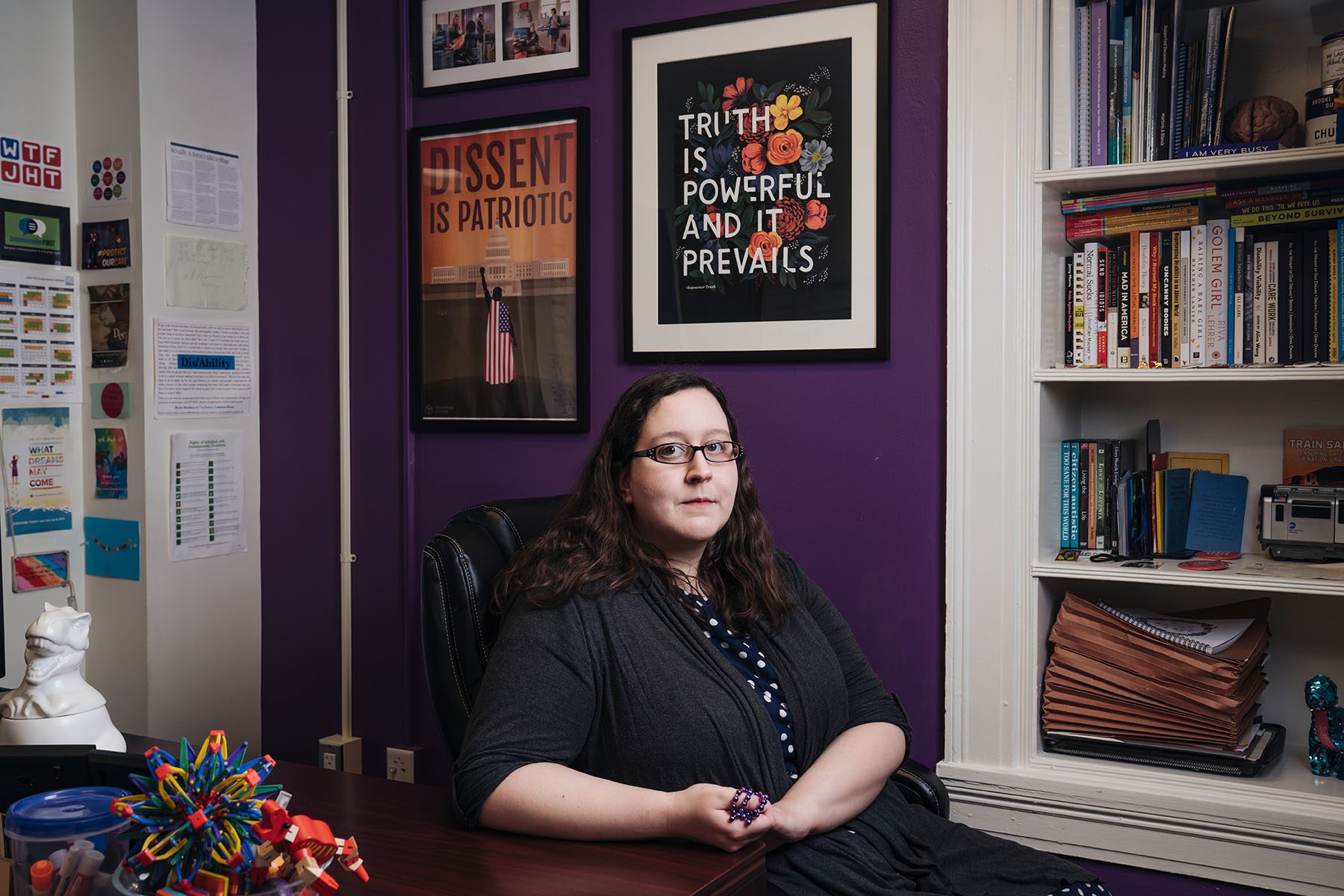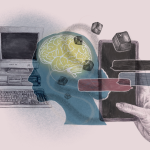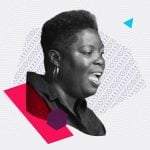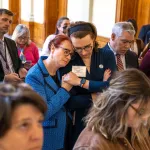April is Autism Acceptance Month, marked by hashtags, charity fundraising and celebrity parent interviews. Many articles will highlight autism hiring initiatives or, increasingly, famous people who are autistic themselves. You won’t see Julia Bascom in most Autism Acceptance Month coverage or any major ad campaigns.
This is somewhat by design — she prefers not to be interviewed. Autism can make speaking difficult or draining for some, Bascom said. “In high school, I was a theater kid, but I primarily did stage managing. I like getting stuff done. I don’t like things being about me,” she told The 19th.
Still, Bascom has had an outsized impact on the modern neurodiversity movement, responsible for leading autistic advocacy and political organizing at a national level. Bascom is the executive director of the Autistic Self Advocacy Network (ASAN), the largest nonprofit in the United States operated entirely by and for autistic people. Since she took the helm in 2017, she has made ASAN a vital part of progressive political coalitions. While not many policy priorities have passed, Bascom’s mere presence in the room is significant. For most of the diagnosis’s existence, autistic people have been largely excluded from autism advocacy.
“There’s less hostility [now] to autistic people being in the conversation at all. People aren’t necessarily happy that we’re in the conversation, but they do expect us,” Bascom said.
Neurodiversity advocacy, the branch of the disability rights movement focused on the rights of people with cognitive disabilities, was once a fringe idea. In the past few years, it has gone mainstream. It’s significant that conversation is being led by a woman: While women like climate activist Greta Thunberg and comedian Hannah Gadsby are gaining greater visibility, autism is still primarily associated with men. Autism is still diagnosed four times as often in boys than it is in girls, who are diagnosed, on average, later than male peers.
Bascom has experienced that firsthand: She didn’t receive her diagnosis until she was in her early teens.
“I experienced what I think a lot of autistic women experience: cycling through 10 psychiatric labels before autism is the one that sticks,” Bascom said.
The neurodiversity movement was still in its infancy when she received her diagnosis. Social media platforms like Twitter and TikTok, a major force in the popularization of the movement, didn’t exist yet. Bascom, then in rural New Hampshire, connected to the autistic community through blogs.
“I was learning all of this really scary information about my brain and about my future,” Bascom recalled. “But at the same time, I was connecting to people who were telling me, ‘You’re going to be OK. There are a lot of people like you out there. You have value and worth and rights. I don’t think most autistic teenagers experience that when they start learning about autism.”
In high school, Bascom began working in segregated special education classrooms as a teacher’s aide, which she credits with having a profound impact on her career as an organizer. She saw herself reflected in the younger children she worked with.
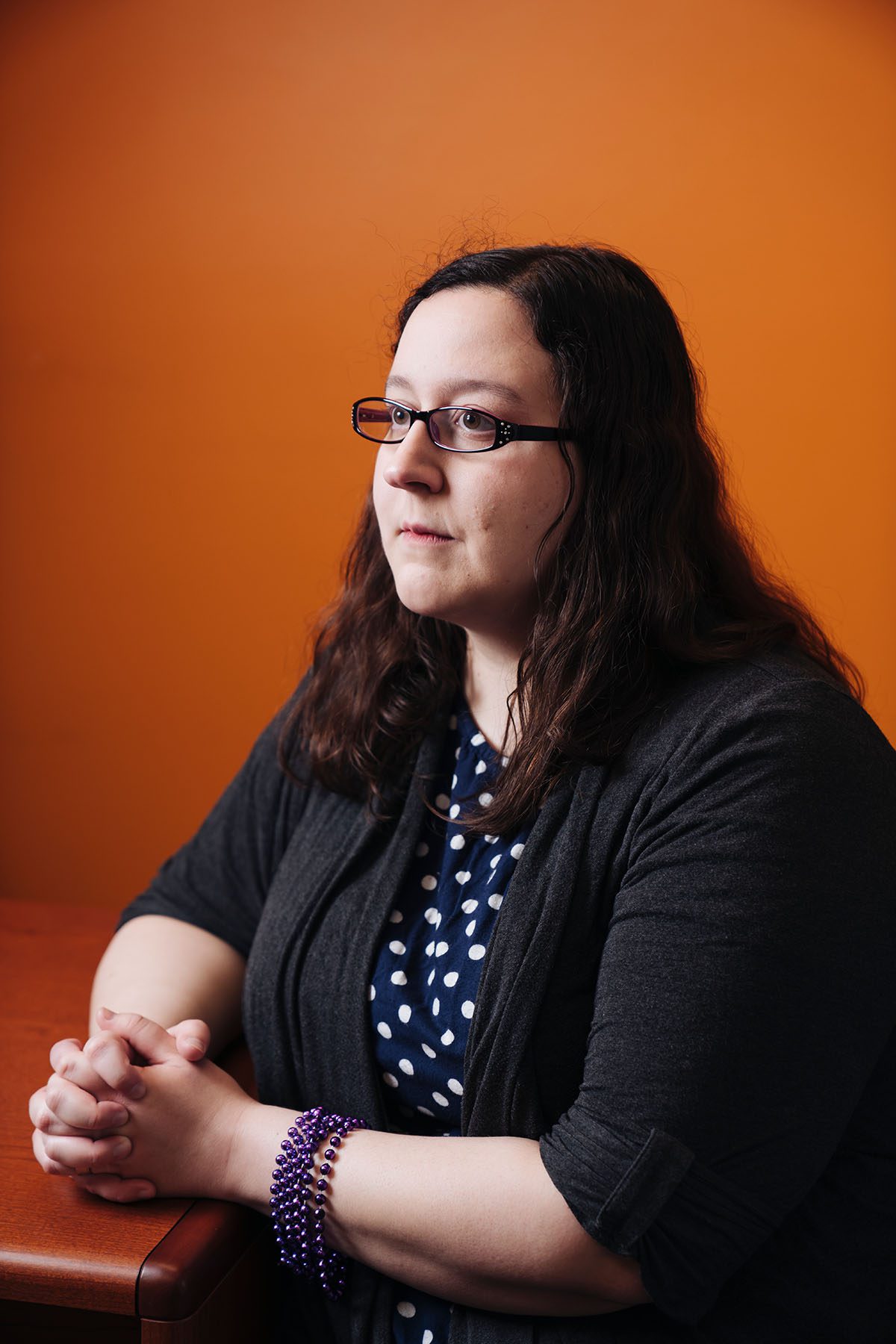
“What I saw in those classrooms, that’s what really radicalized me,” she said. “I remember I was working with a kid who was really frustrated. It was occupational therapy, and they were working on tying shoes. So I bent down and I told him, ‘Hey, I can’t tie my own shoes either, kid,” Bascom said. “His whole body changed, hearing that.”
After graduating high school, Bascom spent one year at Smith College before withdrawing for medical reasons. She never went back to school and instead started working for New Hampshire’s State Councils on Developmental Disabilities, to advocate for her own needs and the needs of people like her in her home state.
Almost a decade ago, Bascom started working for the new Autistic Self Advocacy Network, initially working on an anthology book project, but she soon transitioned to policy work. ASAN has provided an autistic voice in legislative discussions, emphasizing that autistic people can speak for themselves. The organization’s founding was largely a reaction to the absence of autistic leadership in advocacy.
“For the first several years of [the Autistic Self Advocacy Network], we were a national grassroots organization. Which means we were five different people in different cities with laptops,” Bascom said.
Since then, the organization has flourished — from literally running out of a college dorm room to being an organization of national importance. This is thanks, in no small part, to Bascom’s work.
Ari Ne’eman founded ASAN in 2006, when he was still a teenager. Ne’eman subsequently had a meteoric rise in Washington policy circles. In 2009, he was appointed to then-President Barack Obama’s National Council on Disability, a role he held up until 2016, when handed the reins to Bascom.
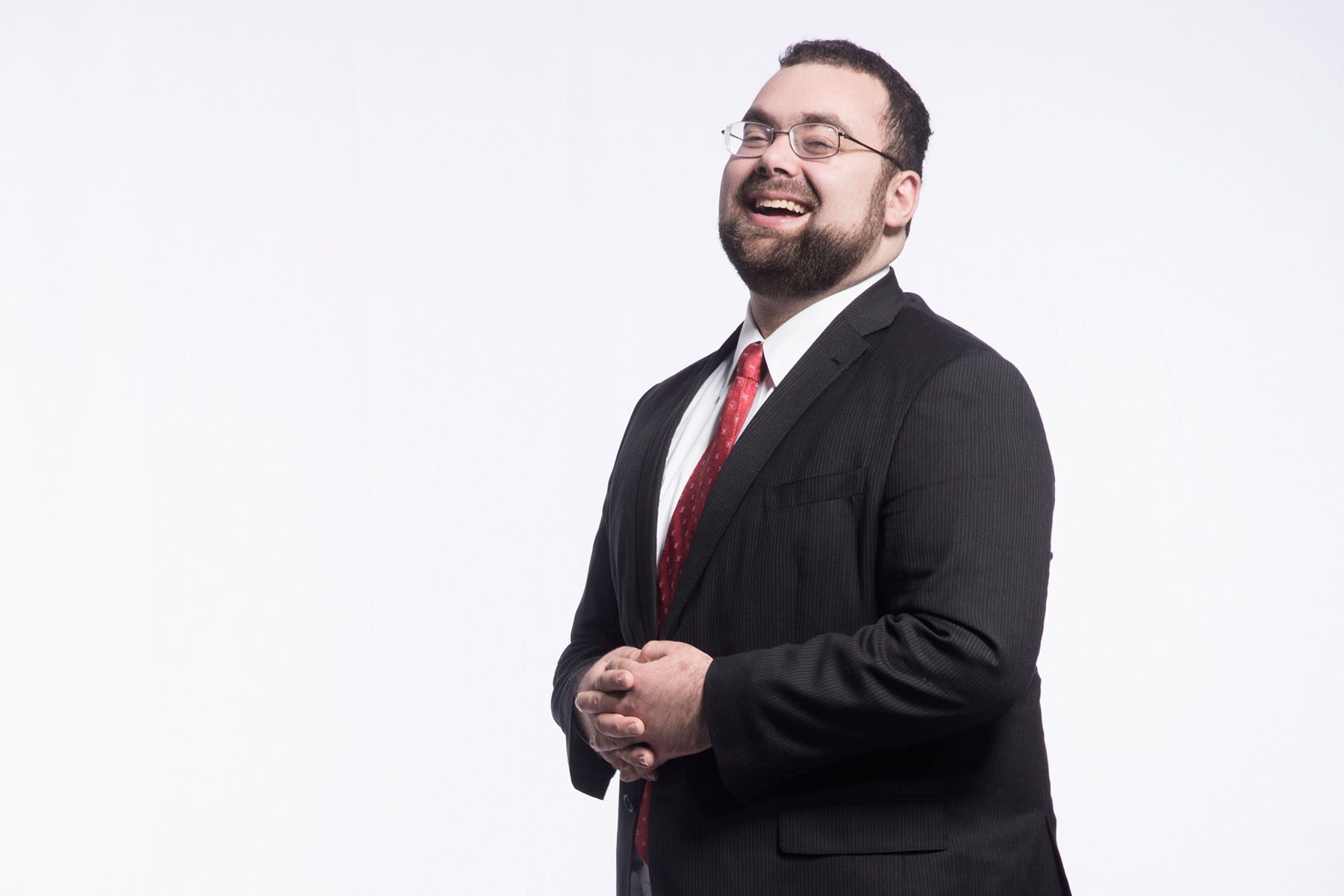
“I think one of the hardest transitions any organization has to make is from its founder to its next executive director. She has very much made the organization her own. I’m very happy with her leadership, not just as her predecessor, but also as a longtime member of the autistic community,” Ne’eman said.
Over the past five years, ASAN’s policy team has doubled. Bascom has also taken steps to improve diversity within the organization to better reflect the autistic community. While the staff has always had strong representation of women and LGBTQ+ people, it has also, for most of its history, been very White. Bascom has been intentional in her hiring — most of the hires under her tenure have been people of color. “We still have a lot of work to do,” Bascom said.
Despite the broadly male public perception of autism, Ne’eman said that women and LGBTQ+ people had always been at the forefront of the neurodiversity movement. The founder of the neurodiversity movement, Jim Sinclair, is intersex and nonbinary, though the latter term was not yet in widespread use during the 1990s. Ne’eman believes that Sinclair’s experience doing advocacy around intersex issues deeply informed the foundation of the neurodiversity movement.
“What it comes down to is that feminist maxim that the personal is political… If you understand [oppression] in one part of your life, you’re more likely to recognize it in other parts of your life,” he told The 19th.
President Donald Trump was elected shortly after Bascom took over ASAN. One of Trump’s first orders of business was an attempt to cut Medicaid funding by repealing the Affordable Care Act. Many Americans with disabilities, including autistic Americans, rely on that funding to survive. Medicaid is the primary funder for home care in the United States. This can encompass assistance with everyday tasks as basic as eating or getting dressed in the morning. Many autistic and other Americans with disabilities rely on Medicaid to remain in their own homes rather than institutions or nursing homes.
Bascom immediately set to work.
“I officially came into this position as the Trump administration was starting. The fight to repeal the Affordable Care Act was just kicking off. I’m weirdly grateful for it. There was never any time to worry about my leadership style, what people were thinking about me,” Bascom said.
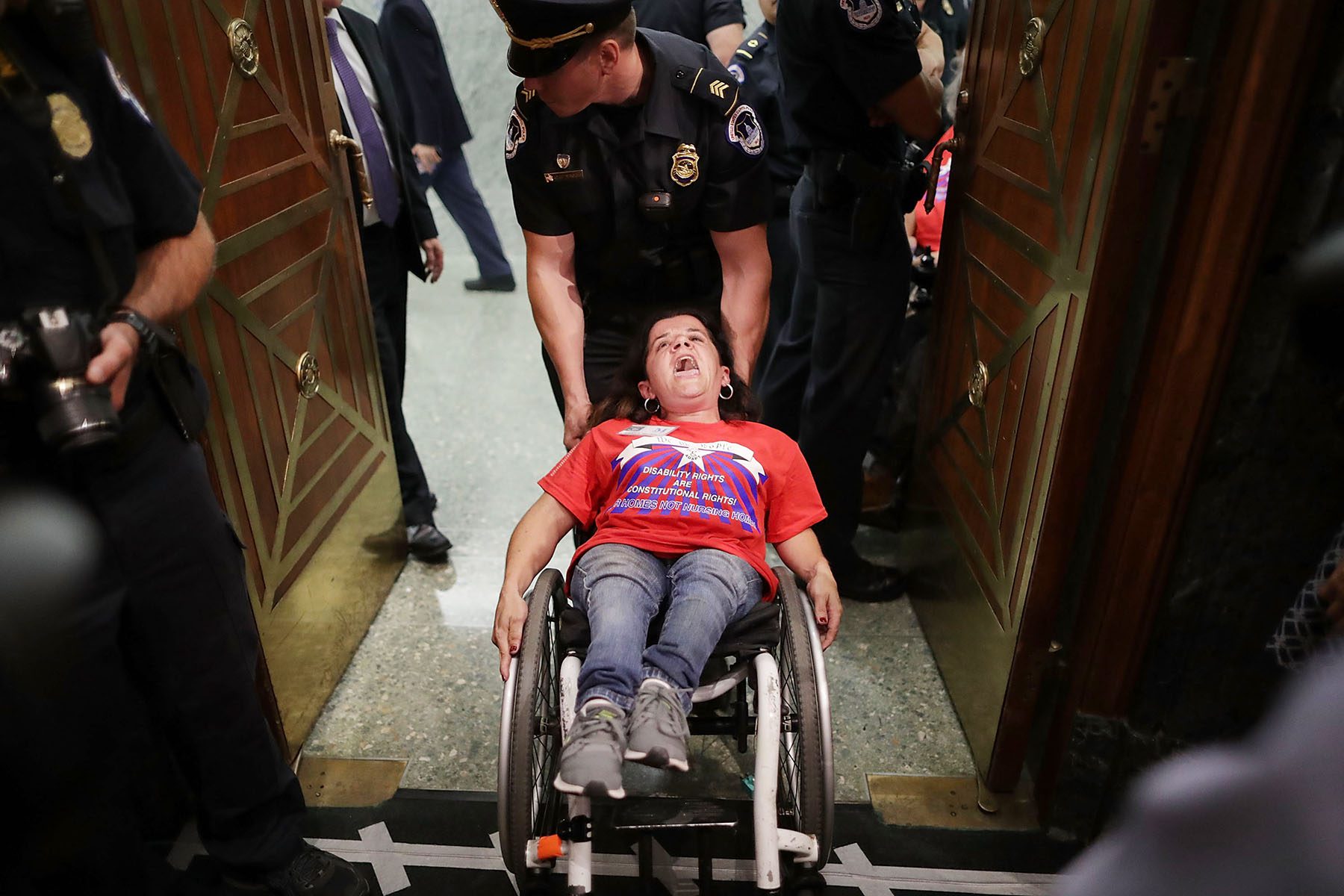
She and other disability advocates “were on the Hill constantly,” fighting to stop the Trump administration from gutting Medicaid. Protesters from the radical group ADAPT were dragged out of their wheelchairs by Capitol Police outside then-Majority Leader Mitch McConnell’s office and from Senate hearing rooms. At the same time, Bascom and other disability advocates were meeting with senators and representatives, begging them not to cut or cap Medicaid spending. The attempt to cut Medicaid and repeal the ACA failed.
The fight gave Bascom and other disability advocates new political capital. Labor unions and the reproductive rights movement both have strained histories with the disability community. That has changed significantly since 2017, in large part due to Bascom and other disability leaders building and maintaining bridges where none had previously existed.
“Before 2017, you wouldn’t get disability advocates and labor in the same room. The effort to expand [home care] has pulled together disability, aging and labor in a way that’s unprecedented. And Julia is a major part of that,” Nicole Jorwic, a longtime disability advocate and colleague, told The 19th.
Relationship building has been emblematic of her leadership style at ASAN.
“Julia is a powerful, intelligent, articulate woman. She’s not there to power grab… She’s not in the limelight because that’s just who she is,” said disability rights activist Judy Heumann. Instead, Heumann said, “[Bascom] is respected for who she is and what she does, for her ability to work well with other people.”
Still, there is much to do. The left-hand wall of Bascom’s office is covered by an enormous whiteboard, where everything from political strategies and inside jokes are mapped out. There is also a list of several bills and policy priorities the ASAN is working to advance: an end to disabled subminimum wage, banning the use of electric shock as punishment for disabled students, home care funding.
Bascom is pleased that some ideas she and the Autistic Self Advocacy Network have pushed for over a decade have gained traction: the use of Autism Acceptance Month rather than Autism Awareness Month, greater emphasis on issues like employment and quality of life, and less emphasis on finding a cure. But those ideas have been largely symbolic, according to Bascom. The lion’s share of autism funding still goes to genetics and other causal research.
“We’ve forced a lot of symbolic and aesthetic changes. Autism Speaks [the largest autism nonprofit in the United States] has had to change how they talk about autism. They don’t talk about finding a cure anymore,” she said. However, she continued, “that’s not the same thing as material change.”
Bascom bristles at the way neurodiversity is often discussed. The basic definition is that differences in neurology are a biological fact. Conditions like autism, ADHD or Down syndrome are natural expressions of human variance. The neurodiversity Bascom discusses, that she is a movement leader of, goes beyond that.
“Neurodiversity says people have different kinds of brains, and that’s OK. But it goes a step further. People with different brains have rights. We have a right to be here. We have a right to decide how we feel and how we should be treated. We have a right to [disability] accomodation. Neurodiversity isn’t just a biological fact. It’s an idea with teeth,” she told The 19th.
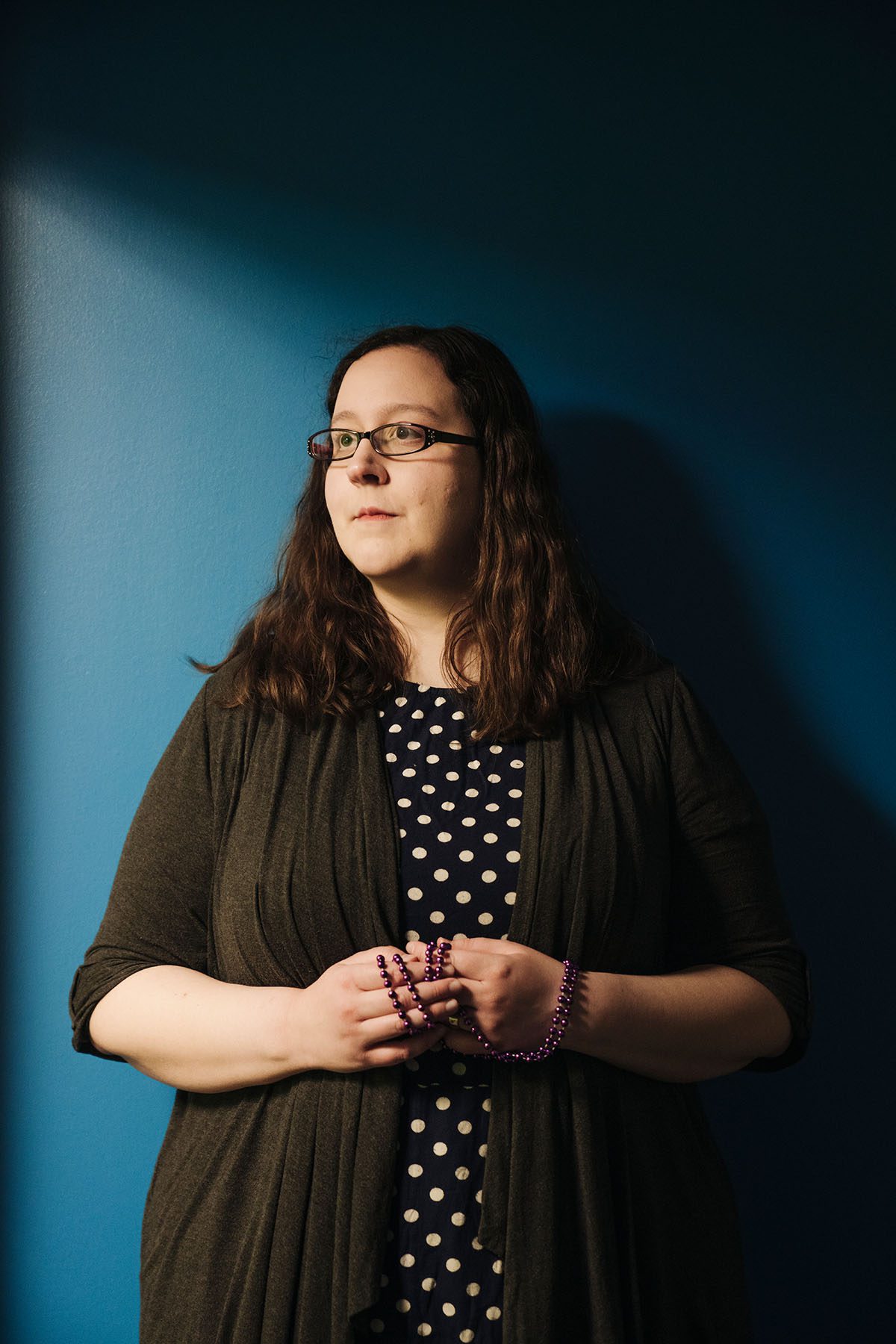
Bascom believes that neurodiverse people should be at the center of those discussions. During her time at ASAN, the organization has churned out dozens of easy read guides — written at a fourth grade reading level, with pictures — to support advocates with intellectual disabilities in advocating for themselves. The guides range from Medicaid to voting rights to the federal budget process.
“No one had ever explained Medicaid and the Affordable Care Act at a fourth grade reading level with pictures before. Even we didn’t know it was possible until we did it,” she said. It is the work Bascom is proudest of during her time leading ASAN. “What we’re doing is even more basic than passing our legislation,” she said. The guides are designed to empower people with intellectual disabilities to understand the issues — well enough to do major advocacy work themselves.
